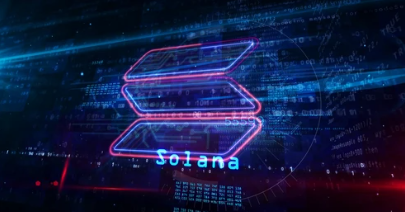Solana’s creation was designed to work with all the functionalities of Ethereum and improve upon the issues that arose in the network’s early days. The blockchain has since grown in popularity in the past few years, with many crypto participants touting Solana as the one to dethrone Ethereum in the altcoin market. However, it seems Solana’s co-founder Anatoly Yakovenko is tired of the comparison, and just wants a situation where the network can thrive.
Anatoly Yakovenko’s Thoughts On The ‘Ethereum Killer’ Label
Solana has done well since the October bottom which led to market gains in the wider crypto market. The crypto’s price has done 197% gains since the middle of October and is up by 531% from its 2023 open of around $9.96. At the same time, Solana’s TVL in DeFi has also grown spectacularly, adding 74.67% in the past month and $482 million since the beginning of 2023.
Furthermore, according to the data provided by DeFiLlama, the daily trade volume of Solana’s DeFi has been surpassing that of Ethereum L2 Chains like as Polygon and Optimism. All these on-chain metrics, coupled with the recent proposal by MakerDAO’s co-founder Rune Christensen to utilize a fork of Solana’s codebase for the creation of MakerDAO’s upcoming native chain called “NewChain” appears to have sparked another round of assertions that Solana is a potential Ethereum killer.
SOL market cap currently at $26.64 billion on the daily chart: TradingView.com
Yakovenko recently took to social media platform X to speak on the recent Ethereum killer making rounds again. According to him, both networks can co-exist even while competing and having most of the same features.
“Don’t bring back last cycle “eth killer” bs,” Yakovenko said. “I don’t see a future where solana thrives and somehow eth dies,” he continued.
Don’t bring back last cycle “eth killer” bs. It’s lame. Pareto efficient technologies can have overlapping features and will compete, but that’s all ok. I don’t see a future where solana thrives and somehow eth dies. I am such a techno optimist that I am certain that…
— toly 🇺🇸 (@aeyakovenko) December 2, 2023
The Future Of Ethereum And Solana
Solana was initially created to address Ethereum’s scaling solution, as the network could only process 15 transactions per second in its early days. Solana’s solution then came with a combination of proof-of-history and delegated proof-of-stake protocols to process more than 50,000 transactions per second. Other networks like Cardano that serve the same use-case were also touted as potential Ethereum killers.
However, this scalability issue has since been addressed on Ethereum and the network can now process up to 100,000 transactions per second. Layer-2 protocols have also been built, and Ethereum continues to retain its title as the king of altcoins.
Ethereum developers are also looking to increase transactional throughput by introducing a rollup scaling method called danksharding. Yakovenko also believes danksharding will eventually have enough bandwidth to accommodate all of Solana’s data.
Solana is currently trading at $63.43 and is on its way to the $70 price point. The first step would be to break above the yearly high of $65.5.
Featured image from Shutterstock
